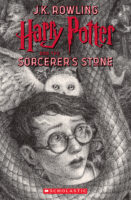Top Graphic Organizers to Help Students Learn About Character Traits
Help your students identify and relate to character traits with these graphic organizers.
Key Takeaways
- Identifying character traits is important for reading comprehension.
- When students better understand the characters they read about, reading becomes more fun.
- Graphic organizers are an effective tool for helping students learn about and analyze characters in a text.
Teachers often breathe a sigh of relief when students read works of fiction and are able to identify the key traits that define the book's main characters. Why? Because it means students truly comprehend what they're reading! But that's not the only benefit:
- By knowing the motivations behind a character, students will have a better, and more nuanced, understanding of the plot.
- Students engage more fully and effectively with the story. (Discussing character traits is an excellent way to start a conversation about a story.)
- Students will be able to create characters with greater complexity and detail in their own writing.
But taking a character's actions, thoughts, and motivations, and then distilling them into specific traits isn't always easy. Graphic organizers are a great tool students can use to learn about character traits because they guide students through the learning process step by step. As they identify what a character sees, does, feels, and thinks throughout a story, students can use their graphic organizers to jot down their ideas and evidence from the text to successfully analyze the character.
Wondering which graphic organizers are the best for your learners? Check out these top 19 graphic organizers for a range of grade levels.
For the youngest students:
- Character Columns Graphic Organizer
- .Wild About Characters: Reading Response Organizer
- Who's in the News: Reading Response Organizer
- The Proof Is in the Character Graphic Organizer
For students in grades 1-2:
- Graphic Organizer Character Report
- Character T-Chart (Crafting a Character): Writing Skills Lesson Plan & Graphic Organizer
- Characters That Change (making inferences): Graphic Organizer
- What a Character! Reading Response Bookmark & Graphic Organizer
For students in grades 3-5:
- Reading Graphic Organizer: Character Portrait
- What a Character: Independent Reading Graphic Organizer
- Focus on Character: Independent Reading Homework
- Character Analysis: Leveled Graphic Organizers for Differentiated Reading Instruction
- Character Perspective: Leveled Graphic Organizers for Differentiated Reading Instruction
For students in grades 6-8:
- Character Analysis: Leveled Graphic Organizers for Differentiated Reading Instruction
- Character Perspective: Leveled Graphic Organizers for Differentiated Reading Instruction
- Character Development (Narrative Writing): Leveled Graphic Organizers for Differentiated Instruction
- Characterization: Using Picture Books to Teach Literary Elements
To learn more about graphic organizers and gain access to thousands of printable, projectable, and downloadable teacher resources that will help your students learn about character traits and more, log in or subscribe to Scholastic Teachables today!


